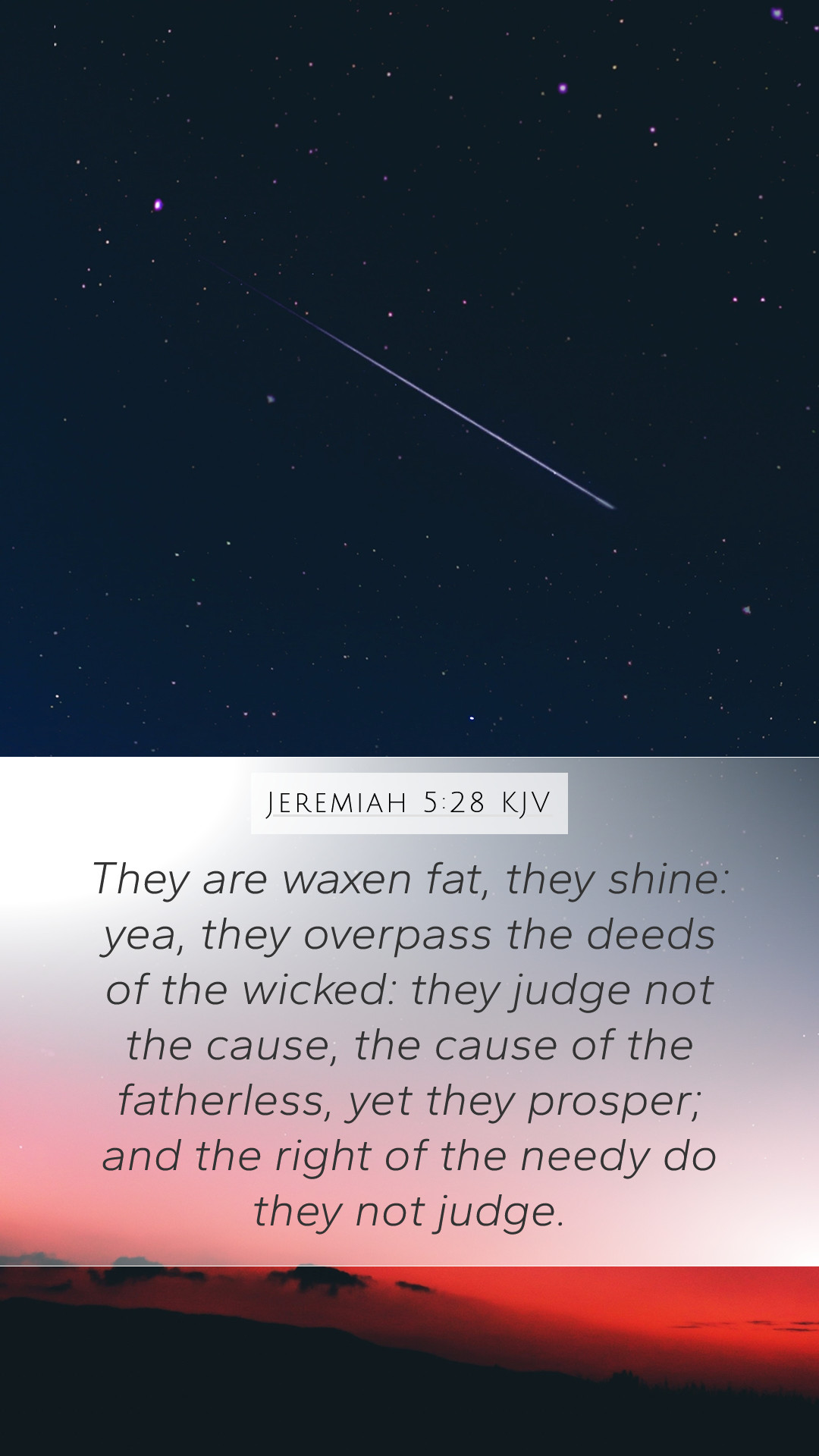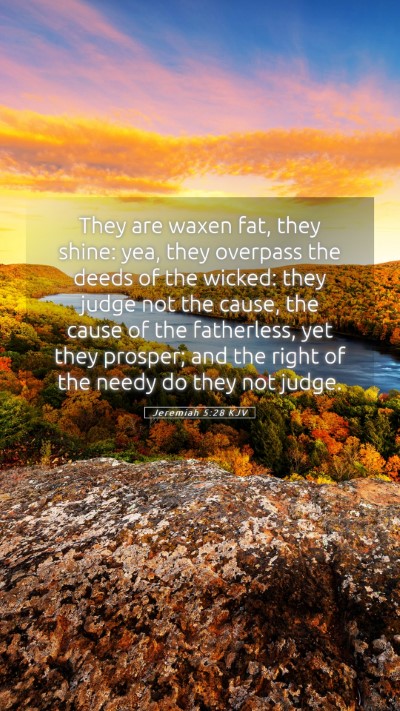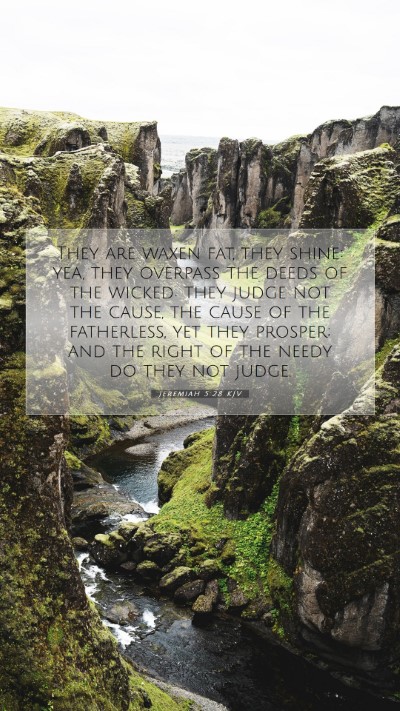Understanding Jeremiah 5:28
Bible Verse: Jeremiah 5:28
This verse speaks to the condition of the people of Israel, highlighting their societal decay and moral decline. It portrays the disconnect between their actions and the divine expectations imposed upon them.
Bible Verse Meaning and Interpretation
Jeremiah 5:28 states: "They are waxen fat, they shine: yea, they overpass the deeds of the wicked: they judge not the cause, the cause of the fatherless, yet they prosper; and the right of the needy do they not judge."
- Spiritual Complacency: Matthew Henry’s commentary emphasizes the spiritual complacency found among the people. They have become wealthy and satisfied, leading them to neglect justice and mercy.
- Social Injustice: Albert Barnes focuses on the issues of social injustice, observing that the people fail to advocate for the vulnerable, like orphans and the needy, revealing a critical moral shortcoming.
- Divine Judgment: Adam Clarke points out the warning embedded in the text; their prosperity amidst such injustice foreshadows inevitable divine judgment.
Key Themes
- Materialism and Indifference: The verse illustrates a society thriving materially while disregarding divine commandments regarding social justice.
- Neglect of Justice: The absence of advocacy for the needy reflects a broader neglect of moral duties, a common theme in prophetic literature.
- Consequences of Sin: The warnings inferred suggest that prosperity without righteousness leads to eventual downfall.
Application of Jeremiah 5:28
When interpreting this verse within a modern context, we can draw parallels to contemporary issues of wealth disparity and social justice. This encourages Bible study groups and individuals to reflect on the following:
- How to actively participate in advocating for the underprivileged in today’s society.
- The importance of aligning personal prosperity with ethical behavior and community responsibilities.
- Strategies for using Bible study tools to explore themes of justice and mercy throughout Scripture.
Related Bible Verses
- Isaiah 1:17 - Calls to "learn to do good; seek justice, correct oppression."
- Proverbs 14:31 - Highlights that "whoever oppresses a poor man insults his Maker."
- James 1:27 - Defines pure religion as caring for orphans and widows in their distress.
- Psalm 82:3 - Urges judges to "give justice to the weak and the fatherless."
- Micah 6:8 - States that the Lord requires justice, mercy, and humility.
Conclusion
In summary, Jeremiah 5:28 provides deep insights into the spiritual and social landscape of Israel during the time of the prophet Jeremiah. Its lessons on justice, advocacy for the needy, and divine expectations resonate through centuries and remain relevant in modern discussions of societal ethics. By engaging with this and similar verses, we can cultivate a robust understanding of Scripture that emphasizes the importance of aligning faith with actions.
For an in-depth Bible verse analysis, consider joining an online Bible study or utilizing Bible study resources that focus on the themes highlighted in this powerful verse.


